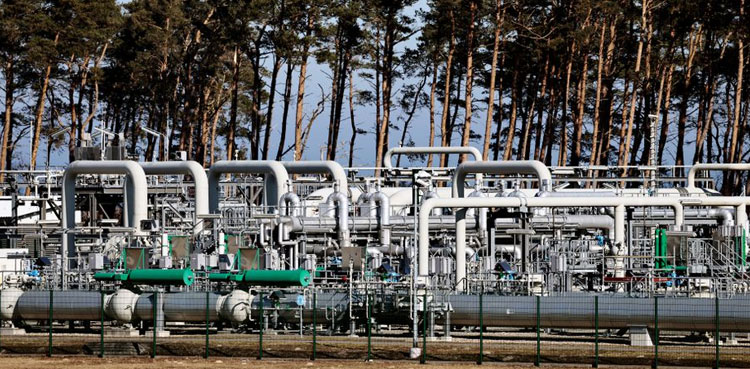
FRANKFURT/MILAN: Europe’s biggest Russian gas buyers raced to find alternative fuel supplies on Monday and could burn more coal to cope with reduced gas flows from Russia that threaten an energy crisis in winter if stores are not refilled.
Germany, Italy, Austria and the Netherlands have all signalled that coal-fired power plants could help see the continent through a crisis that has sent gas prices surging and added to the challenge facing policymakers battling inflation.
The Dutch government said on Monday it would remove a cap on production at coal-fired energy plants and will activate the first phase of an energy crisis plan.
Denmark has also initiated the first step of an emergency gas plan due to the Russian supply uncertainty.
Italy moved closer to declaring a state of alert on energy after oil company Eni said it was told by Russia’s Gazprom that it would receive only part of its request for gas supplies on Monday.
Germany, which has also experienced lower Russian flows, has announced its latest plan to boost gas storage levels and said it could restart coal-fired power plants that it had aimed to phase out.
“That is painful, but it is a sheer necessity in this situation to reduce gas consumption,” said Economy Minister Robert Habeck, a member of the Green party that has pushed for a faster exit from coal, which produces more greenhouse gases.
“But if we don’t do it, then we run the risk that the storage facilities will not be full enough at the end of the year towards the winter season. And then we are blackmailable on a political level,” he said.
Russia on Monday repeated its earlier criticism that Europe had only itself to blame after the West imposed sanctions in response to Moscow’s invasion of Ukraine, a gas transit route to Europe as well as a major wheat exporter.
The Dutch front-month gas contract, the European benchmark, was trading around 124 euros ($130) per megawatt hour (MWh) on Monday, down from this year’s peak of 335 euros but still up more than 300% on its level a year ago.
FILLING INVENTORIES SLOWLY
Markus Krebber, CEO of Germany’s largest power producer RWE, said power prices could take three to five years to fall back to lower levels.
Russian gas flows to Germany through the Nord Stream 1 pipeline, the main route supplying Europe’s biggest economy, were still running at about 40% of capacity on Monday, even though they had edged up from the start of last week.
Ukraine said its pipelines could help to fill any gap in supply via Nord Stream 1. Moscow has previously said it could not pump more through the pipelines that Ukraine has not already shut off.
Eni and German utility Uniper were among European companies that said they were receiving less than contracted Russian gas volumes, although Europe’s gas inventories are still filling – albeit more slowly.
They were about 54% full on Monday against a European Union target of 80% by October and 90% by November.
Germany’s economy ministry said bringing back coal-fired power plants could add up to 10 gigawatts of capacity in case gas supply hit critical levels. A law related to the move goes to the upper house of parliament on July 8.
RWE said on Monday it could prolong the operation of three 300 megawatt (MW) brown coal power plants if needed.
from ARY NEWS https://ift.tt/BlqTbrN
via

0 Comments